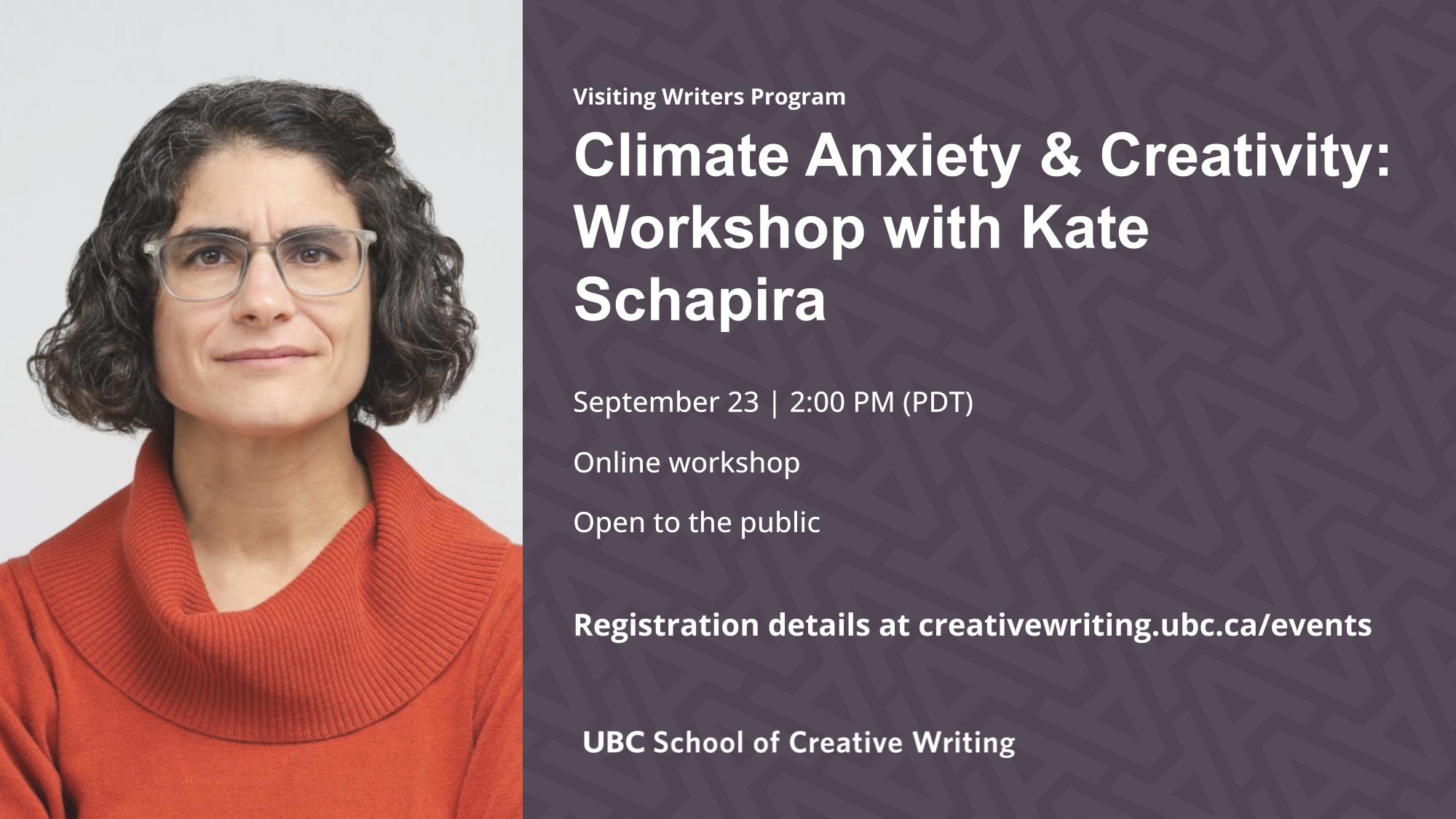

Can we write our way out of the climate crisis? Not exactly—but imagining, discussing, recording and reimagining a livable present and future can expand our interest and flexibility, building us a vision to work toward and reasons to work toward it—even in the context of the climate realities we know. Bring your anxiety, rage, despair, apathy, or whatever other “climate emotions” you have! We’ll do some small exercises to carry those feelings, and collaborate on writing a future where they’re less necessary.
Registration is open to everyone.
Introduced by Bronwen Tate
We’re excited to host several visiting writer events for our students, alumni and faculty this term. To help celebrate, the UBC Bookstore is offering a 20% discount on featured books in-store and online until September 30. Visit the bookstore for more information.
Access
The School of Creative Writing is committed to making our events as accessible as possible. If you have questions or requests about access, please contact Sarah Leavitt at least one week before the event at sarah.leavitt@ubc.ca.
About Kate Schapira
Kate Schapira has been listening to people about climate change for ten years, at the Climate Anxiety Counseling booth and elsewhere. She lives in Providence, Rhode Island, where she teaches nonfiction writing at Brown University and is involved with local efforts toward environmental justice, climate justice and peer mental health support.
The exercises in her first work of nonfiction, Lessons from the Climate Anxiety Counseling Booth, offer actionable steps for connecting with others, identifying and activating community abundance, matching your skills with organized climate activism, and imagining a radically more livable future in order to bring it into being. She partners with community health initiatives, museums, schools and universities, career development offices and community organizations to implement and adapt these exercises to further and deepen their missions and visions.
In addition to Lessons from the Climate Anxiety Counseling Booth, Kate is also the author of six books of poetry, and her prose has appeared in Catapult, The Rumpus, The Toast, and as a chapbook from Essay Press called Time to Be Something Other Than Human. With Carolyn McGrath and the Climate Psychology Alliance of North America, she co-edited the Educator’s Guide to Climate Emotions. She never met a tidepool she didn’t like.